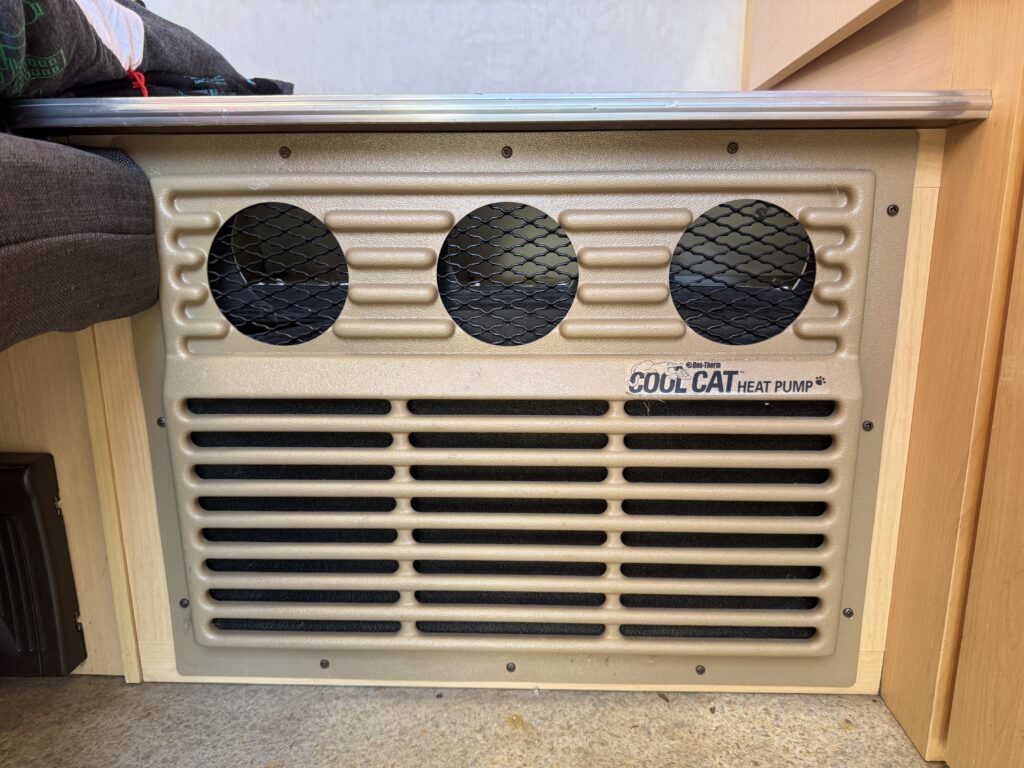RV Air Conditioner Repair: Troubleshooting and Maintenance Guide
Ensuring your RV remains cool and comfortable, particularly during the scorching summer months, hinges on the reliable performance of your air conditioner. However, RV air conditioners, like any machine, can run into issues that demand immediate attention. This detailed guide will explore frequent problems that may arise with your RV air conditioner and outline key steps for effective RV air conditioner repair and maintenance.
Understanding Your RV Air Conditioner
Before you start troubleshooting, it’s crucial to familiarize yourself with the essential components and mechanisms of your RV air conditioner. There are two primary systems involved: the sealed system, comprising the compressor, condenser, and evaporator that cool the air, and the air moving system, consisting of a motor and two fans, one each for the condenser and evaporator.
Common Issues with RV Air Conditioners
No Power to the Unit
A common yet aggravating problem is when your RV air conditioner doesn’t power on. Here’s how to troubleshoot:
- Check the Power Source: Confirm that the RV is properly connected to an outlet and inspect the power cable for damage. Often, this simple step can fix the problem.
- Flip the Breaker: If the power source checks out, examine both the campground’s power pole breaker and the breaker inside your RV. If a breaker has tripped, switch it back on, keeping in mind to avoid overloading your system.
Weak or No Airflow
Limited or no airflow from your RV air conditioner can be particularly troubling. Address this problem by following these steps:
- Clean the Coils and Filters: Accumulation of dirt in the coils and filters can severely diminish airflow. Use a soft-bristle brush or vacuum to clean the evaporator and condenser coils and replace or clean the filters as needed.
- Check for Blockages: Make sure there’s no obstruction in the ductwork or vents and regularly check the plenum or dam area in your RV to seal any gaps that might be causing air leaks.
Cycling On and Off
Frequent cycling on and off of your RV air conditioner can stem from several issues:
- Look for Ice: Ice formation can cause the compressor to cycle erratically. Use the fan mode to thaw the ice and clean the coils and filters to avoid future issues.
- High Humidity: Excessive humidity can also lead to the evaporator coils freezing, causing similar cycling problems. Using a dehumidifier in your RV can help address this.

RV air conditioner repair job photo
Maintenance Tips for RV Air Conditioners
Clean the Filters and Coils
- Air Filters: Clean your air filters monthly, especially during frequent use, with warm water and allow them to air dry completely before reinstalling. Replace any that are damaged or overly worn.
- Evaporator and Condenser Coils: Keep these coils clean to prevent dirt and debris accumulation. Utilize a soft-bristle brush or vacuum for the evaporator and a coil cleaner for the condenser after removing the shroud.
Check and Clean the Drain Pan
Ensure the drain pan isn’t clogged to prevent water from leaking inside your RV. Regular cleaning will maintain proper drainage.
By adhering to these troubleshooting techniques and maintenance practices, you will not only prolong the life of your RV air conditioner but also enhance its efficiency. Nevertheless, intricate issues like refrigerant leaks or major compressor malfunctions often necessitate professional intervention.
Let’s dive into more advanced troubleshooting methods, the benefits of yearly servicing, and the situations in which it’s advisable to seek the expertise of an RV technician.
Deeper into RV Air Conditioner Repair
In our initial discussion, we touched upon common issues and basic troubleshooting techniques for RV air conditioner repair. Now, we’ll delve deeper into more advanced and intricate problems that may arise with your RV’s air conditioning system. Understanding these complexities will help you maintain your unit efficiently and ensure it operates at its best throughout your travels.
Advanced Troubleshooting Techniques
Low Refrigerant Levels
If your RV air conditioner is not cooling properly, one significant issue could be low refrigerant levels. Refrigerant is essential for the cooling process, as it absorbs heat from inside the RV and transfers it outside. If the system is leaking, you may need to inspect the joints, connections, and coils for signs of leaks. Refrigerant leaks can be difficult to detect without proper tools and expertise, so it’s advisable to consult a professional RV air conditioner repair service if you suspect a leak[5].
Dirty Coils
Both the condenser coils (outside the RV) and evaporator coils (inside the RV) play crucial roles in heat transfer. If these coils are dirty, they cannot efficiently transfer heat, leading to reduced cooling performance. Regular cleaning with a gentle brush or a garden hose can help maintain their efficiency. Ensure that you follow the manufacturer’s cleaning guidelines to avoid damaging the coils[3][4].
Capacitor Issues
The capacitors in your RV air conditioner are responsible for starting and running the compressor and fan motors. A faulty capacitor can prevent these motors from functioning correctly or cause them to stop working altogether. Testing capacitors requires a qualified RV Technician to ensure proper diagnosis and performance[4].
Maintenance Tips for Longevity
Regular Filter Cleaning
The return air filter should be cleaned and replaced periodically to ensure proper airflow and to prevent the evaporator coils from freezing. This simple step can significantly enhance the performance and longevity of your RV air conditioner[1].
Power Management
Be mindful of your RV’s power capacity when operating multiple appliances simultaneously. An RV air conditioner can consume a substantial amount of power, especially during startup. Avoid overloading your electrical system by turning off other appliances while running the AC[1].
Ductwork Inspection
Periodically inspect the ductwork for leaks or gaps, which can compromise the cooling efficiency of your RV air conditioner. Sealing any gaps with HVAC foil tape can help maintain the cool air within the ducts[1].
Dehumidifier Use in Humid Environments
In humid climates, the RV air conditioner may struggle to maintain a cool temperature due to the high moisture levels. Using a dehumidifier inside your RV can help reduce moisture and improve cooling performance[1].
DIY vs. Professional RV Air Conditioner Repair
While some minor repairs can be handled by RV owners, more complex issues often require professional RV air conditioner repair. If you’re dealing with problems like refrigerant leaks, faulty compressors, or electrical component failures, it’s advisable to seek assistance from a qualified technician. They have the necessary tools and expertise to diagnose and fix deeper issues efficiently.
RV air conditioner repair involves a combination of troubleshooting, maintenance, and understanding how your unit operates. By adopting the strategies outlined in this guide, you can ensure your RV air conditioner runs smoothly and efficiently, providing you with a comfortable living space during your travels. Whether you’re crossing the country or simply enjoying a weekend getaway, a well-functioning air conditioner is essential for a pleasant RV experience.
